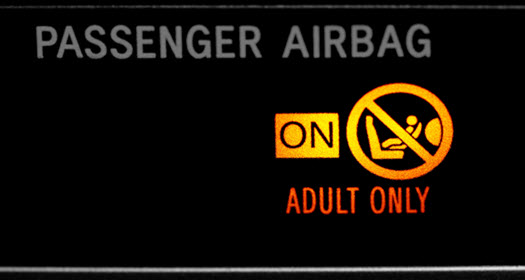What Does an SRS Light Mean?
Posted on | 30 Jun 2017 By Anita Gaal
Car lingo can be frustrating to understand for anyone who has not had any formal education in auto mechanics. The jargon is confusing, and like many mathematical formulas, all the car parts are important to know in order to understand the entire process of “how it works.” One of the most frightening occurrences for the average car owner is getting in the car for work, turning the key, and seeing an unfamiliar light on your dashboard. The dreaded “check engine” light is not on, but instead you see the ominous letters: SRS. Your immediate thoughts might include “how big of a problem is this?” or “how much is this going to cost?” SRS stands for supplemental restraint system, or in laymen’s terms, the airbags. The good news is it may be nothing to worry about. The bad news is, it may be more serious and in need of immediate repair to ensure your safety. Whatever the case, it is important that you bring your car into a mechanic shop to be inspected; better to be safe than sorry. Before you freak out, here are a couple things that might be going on if you see the SRS light on your dash.
SRS system is critical in the event of accident
When looking for potential vehicles to purchase, it is likely that one of the criteria included that the vehicle have adequate safety features. The SRS system is critical in the event of an accident because it has proven in many crash tests to prevent damage to the vital parts of the passengers involved. You can imagine how terrifying it might be to experience a car accident where your airbags did not deploy—in this case, you may have been lucky to walk away. Often when you first start your car, you hear a series of beeps, dings, and chimes. Included in the startup of your car is your vehicle’s own assessment of all the functioning parts. The airbag control unit is basically trying to figure out whether or not the airbags will properly function in the event of an accident and to warn the driver of any detected issues. Today, seatbelts are of incredible importance in minimizing the potential injuries that an individual may sustain in a car crash; however, seatbelts can only do so much.
SRS light can mean a number of different things
The complexities of the SRS system are better left to the professional mechanics—the ramifications could be detrimental if you attempt to fix the issue yourself, or bring your car to someone other than an expert in the automotive field. If the light simply flashes upon starting your vehicle, then you can assume the SRS system is working fine and no issues have been detected. However, if the SRS stays illuminated on your dash, then the issue is more serious; the airbag system has been temporarily disabled until the malfunction has been fixed. The SRS light can mean a number of different things. It could be that the car’s battery is drained, or that the airbag system has sustained damage. The SRS light may also come on when the sensors do not detect a passenger in the car with you; weight sensors in the passenger seat usually determine this. In some cases, it is also possible that there may be something wrong with the sensor that detects whether your seatbelt is fastened or not.
Take help from an auto specialist
The best way to avoid a potentially life-threatening scenario is to take any questionable dash lights to be inspected by an auto specialist. It may be that substantial repair work needs to be done. It could also be that the sensor is malfunctioning and needs to be replaced. Or, the SRS light may simply need to be reset on your dash. It may be an attractive notion to simply skip over this issue and let time pass before you finally decide to get it checked out, however, this issue could be relatively inexpensive to fix, and it is important to not leave your safety, or the safety of your passengers, to chance. The first step you need to take toward ensuring your safety is to call your local trusted mechanic shop to make an appointment for a diagnostic service. It is important that you find professionals who you can trust to assess the issue.











